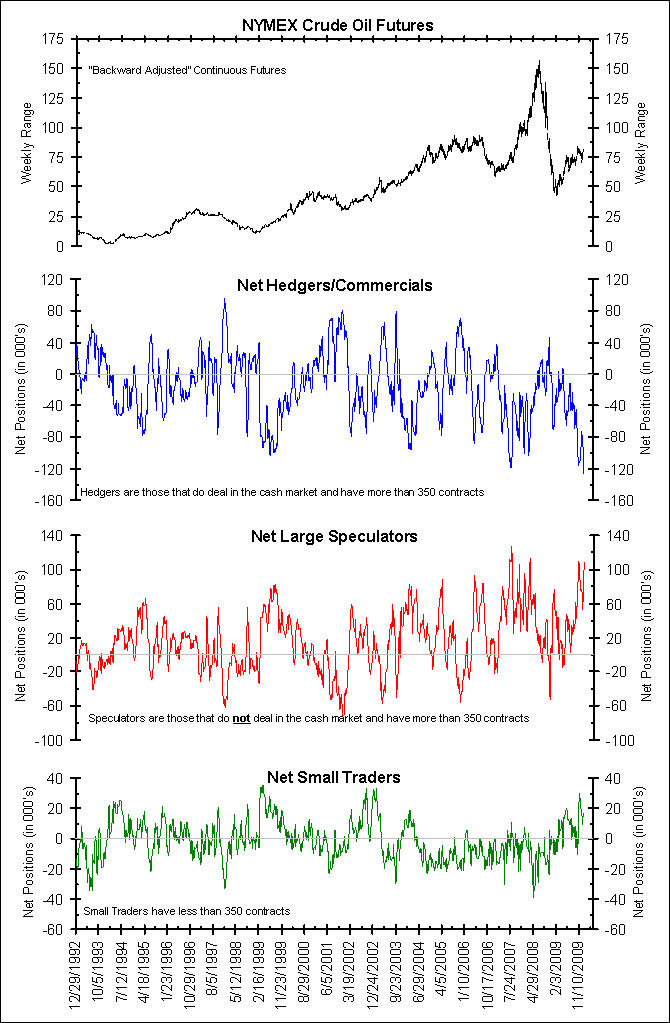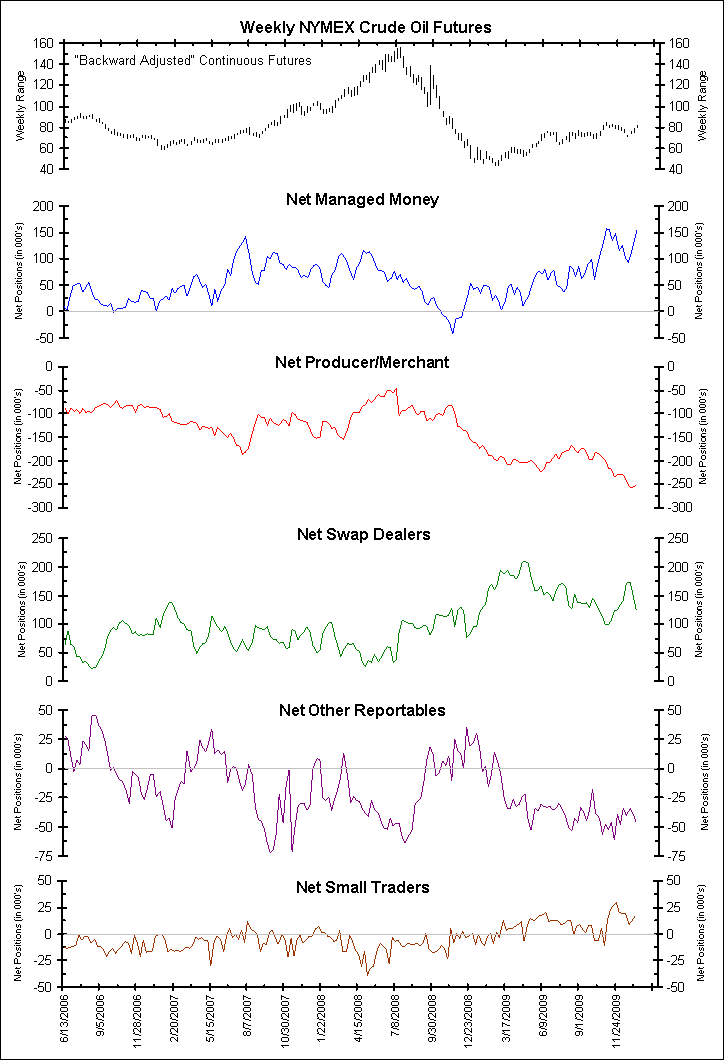Recent substantial increases in the price of crude oil and other energy products have had a significant impact on American consumers. These increases have been, and continue to be, a matter of intense focus at the Commission due to the key role that futures markets play in the critically important price discovery and risk transferal processes. The CFTC shares the concerns of Americans and Congress, and is committed to ensuring that the nation’s futures markets operate fairly and efficiently, and that the price of crude oil and other energy products is determined by the fundamental forces of supply and demand. The CFTC has undertaken a wide-range of actions to ensure that the energy futures markets are operating free of distortion.
One of the many actions taken by the CFTC to study the effect of speculation on energy prices was to reclassify its Commitment of Traders (COT) data. The old data used to offer a look at the net positions of Hedgers/Commercials, Large Speculators, and Small Traders. As the markets evolved throughout the years, these classifications became blurred by hedge funds, index traders, and swap dealers. For this reason, the CFTC now offers its COT data in a different classification format. As the second chart below shows, this same COT data is now broken down by Managed Money, Producer/Merchant, Swap Dealers, Other Reportables, and Small Traders. For a complete explanation of what is included in each category, see the following CFTC link.
By classifying the data in this way, the CFTC hoped to offer more insight into the effect of speculation on market prices. Unfortunately, as the highlighted quote in the story above suggests, the data has been somewhat underwhelming so far in this aspect.
Charts after the jump . . .
>
Click on chart for larger image

>



What's been said:
Discussions found on the web: